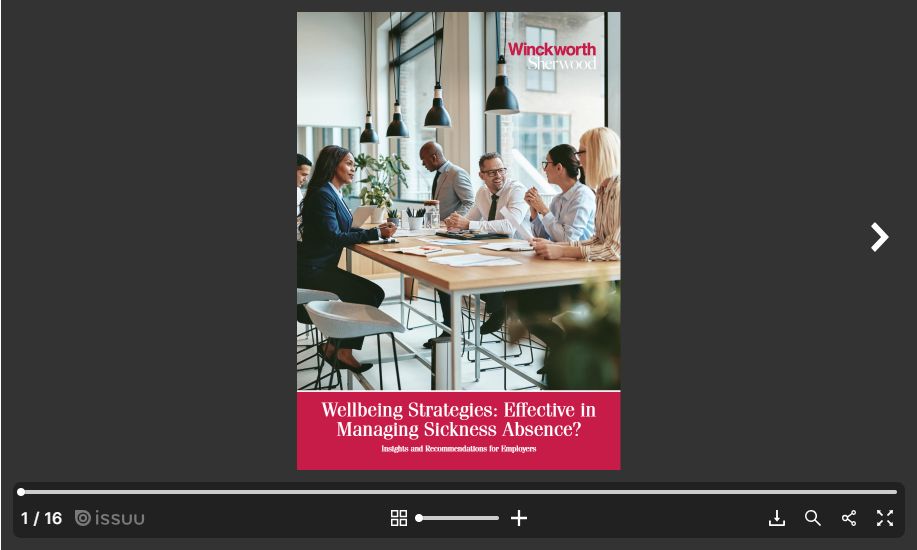We are delighted to share our Research Report, Wellbeing Strategies: Effective in Managing Sickness Absence? Insights and Recommendations for Employers.
The CIPD has recently reported the highest levels of sickness absence in the last 10 years. With so many employers now offering wellbeing benefits and initiatives and a significant amount also having a wellbeing strategy in place, as employment lawyers we were puzzled and interested by this statistic. We wanted to understand whether there was an increased acceptability regarding taking time off and what more employers could do to promote wellbeing in the workplace and prevent sickness absence.
We commissioned a survey of over 1,000 employees and 250 senior HR leaders from 30 April to 7 May 2024. We asked what employers and employees feel are the key factors for promoting wellbeing in the workplace; what strategies, benefits, and initiatives employers actually have in place; whether "wellbeing washing" was taking place with employers giving the appearance of caring about wellbeing but not actually implementing meaningful strategies; and whether employers could be more effective in their wellbeing offering in order to improve the health of their employees.
Download a full copy of the report below.
Our research covers:
- Whether employees are now more comfortable taking time off when they are unwell
- Which are the most common wellbeing strategies, initiatives and benefits that organisations have in place
- Whether employers consider that their wellbeing strategy, initiatives and/or benefits have reduced the levels of sickness absence in their organisation
- Which measures employers and employees consider are the most effective to promote mental health and prevent sickness absence for mental ill-health
- The top reasons that employers have a wellbeing strategy or offer wellbeing initiatives/benefits
- Whether employers and employees consider that too much responsibility is put on employees to improve their own wellbeing as opposed to employers improving their work environment and culture
- Our recommendations on how to effectively promote wellbeing in the workplace
If you are interested in finding out our top tips on how to manage sickness absence, then we are offering two free workshops for HR professionals on 18 June 2024 and 25 September 2024 where practical advice will be provided during an informal and interactive discussion using detailed case studies. Places are limited and you can register your interest here (events@wslaw.co.uk).
The findings and insights from the report have been covered by a number of media outlets – read more here.
Download Wellbeing Strategies - Effective in Managing Sickness Absence?
The content of this article is intended to provide a general guide to the subject matter. Specialist advice should be sought about your specific circumstances.




